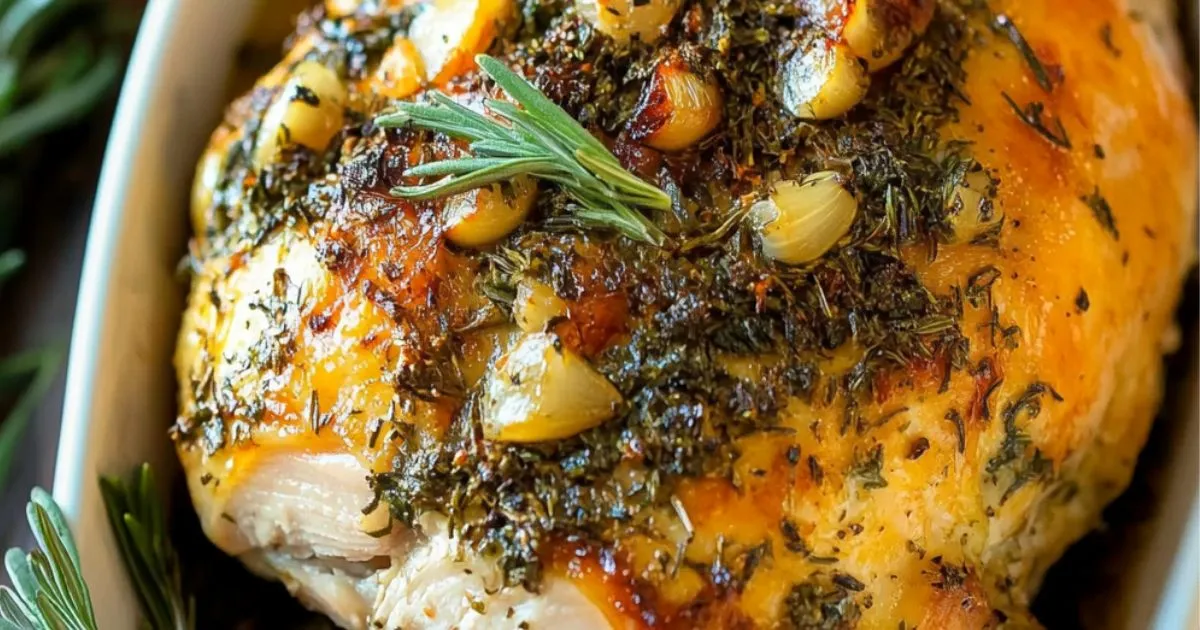What Makes Turkey Breast a Nutritional Powerhouse?
Turkey breast nutrition provides exceptional benefits, making it a true powerhouse for health-conscious individuals. This lean, protein-rich food is packed with essential nutrients, offering a low-calorie yet high-protein option for those aiming to improve their diet. With just 135 calories and 26 grams of protein per 3-ounce serving, turkey breast supports muscle repair, weight management, and sustained energy levels.
Rich in vital vitamins and minerals like B6, zinc, and selenium, it enhances immunity, promotes brain health, and protects against oxidative stress. The minimal fat content, primarily unsaturated, makes it a heart-healthy choice for balanced meals.
Whether grilled, roasted, or baked, turkey breast is a versatile ingredient that fits seamlessly into various diets, including keto and low-carb plans. By incorporating turkey breast into your meals, you can enjoy a nutritious, delicious way to achieve your health and fitness goals while savoring every bite.
Macronutrient Breakdown of Turkey Breast
Turkey breast nutrition is celebrated for its well-rounded macronutrient profile. Each serving offers an optimal blend of protein, fats, and minimal carbohydrates, making it a fantastic dietary option. Here’s the breakdown:
- Protein: Approximately 26 grams per 3-ounce serving, supporting muscle repair and growth.
- Fat: A mere 1-2 grams per serving, ensuring it remains a heart-healthy option.
- Calories: Around 135 per serving, perfect for low-calorie meal plans.
For individuals tracking their dietary intake, turkey breast remains a reliable and nutrient-dense choice. Discover how these macronutrients contribute to balanced eating by reviewing essential turkey breast nutritional facts.
Calories in Turkey Breast
One of the standout features of turkey breast is its low-calorie count. At roughly 135 calories per 3-ounce portion, it’s ideal for those looking to reduce their caloric intake without sacrificing nutrition. This makes turkey breast a favorite among fitness enthusiasts and dieters alike.
For individuals aiming to maintain a calorie deficit, turkey breast offers a satisfying and nutritious option that helps curb hunger while keeping you on track with your goals.
Protein Content and Muscle-Building Benefits
Protein is the star of the show when it comes to turkey breast. With 26 grams of high-quality protein per serving, it supports muscle repair, growth, and overall body function. It’s no surprise that athletes and bodybuilders turn to turkey breast to meet their protein needs.
Protein also plays a crucial role in satiety, helping you feel fuller for longer. Incorporating turkey breast into your diet can aid in maintaining energy levels and reducing unhealthy snacking.
Fat Content: Lean and Healthy
Turkey breast is one of the leanest meat options available, with just 1-2 grams of fat per serving. This makes it a fantastic choice for those monitoring their fat intake. The fat present in turkey breast is predominantly unsaturated, contributing to better heart health.
If you’re searching for a protein source that minimizes unhealthy fats, turkey breast is hard to beat.
Essential Vitamins and Minerals in Turkey Breast
Turkey breast is more than just a great source of protein and low in calories—it’s also packed with essential vitamins and minerals that contribute to overall wellness. Let’s take a closer look at some of its key nutritional components:
- Zinc: Supports immune function, wound healing, and cell growth, keeping your body resilient and healthy.
- Selenium: A powerful antioxidant that protects cells from damage and plays a role in thyroid health.
- B Vitamins: Particularly B6 and niacin, which are crucial for energy production, brain function, and maintaining healthy skin.
- Phosphorus: Vital for strong bones and teeth, as well as aiding in energy metabolism.
- Potassium: Helps regulate blood pressure and supports heart health.
Incorporating turkey breast into your meals ensures you’re fueling your body with a wide range of nutrients that work together to enhance your overall health and vitality.
Vitamin B6 and Its Health Impacts
Turkey breast is a rich source of Vitamin B6, a vital nutrient that supports brain health and the production of red blood cells. Just one serving can supply up to 30% of your daily recommended intake, making it an excellent way to meet your nutritional needs. Vitamin B6 is crucial for energy metabolism, helping your body convert food into energy efficiently, which is especially beneficial for those with an active lifestyle. Including turkey breast in your diet not only boosts your energy levels but also promotes cognitive function and overall vitality. Its nutritional profile makes it a smart choice for maintaining both physical and mental wellness..
The Role of Selenium in Immunity
Selenium, a powerful antioxidant abundant in turkey breast, plays a crucial role in reducing oxidative stress and supporting a robust immune system. By neutralizing harmful free radicals, selenium protects your cells from damage and promotes overall health. Regularly including turkey breast in your diet can enhance your body’s natural defense mechanisms, helping you stay resilient against illnesses. This essential mineral not only bolsters immunity but also supports thyroid function and contributes to maintaining optimal metabolic processes, making turkey breast a valuable addition to a balanced diet.
Zinc: A Critical Mineral for Wellness
Zinc supports immune function, aids in wound healing, and contributes to DNA synthesis. Turkey breast offers a healthy dose of this vital mineral, ensuring your body’s repair processes remain efficient.
Health Benefits of Including Turkey Breast in Your Diet
Weight Management and Satiety
Turkey breast is a fantastic option for those aiming to manage their weight effectively. Packed with lean protein, it not only fuels your body but also helps curb hunger, keeping you satisfied for longer periods. This can naturally lead to reduced calorie intake throughout the day, supporting your weight loss or maintenance goals. The high protein content in turkey breast plays a key role in boosting metabolism and preserving muscle mass, both of which are essential for healthy weight management. As a versatile and low-fat choice, it fits seamlessly into a variety of dishes, making it easy to incorporate into a balanced diet. Whether grilled, roasted, or added to salads and wraps, turkey breast offers a nutritious and satisfying option for those looking to stay on track with their health and fitness journey. Its combination of taste, nutrition, and convenience makes it a top pick for mindful eating.
Heart Health: Low Cholesterol Benefits
Skinless turkey breast is a heart-smart choice due to its low cholesterol content. Its lean profile makes it an ideal protein source for supporting cardiovascular health, helping to maintain healthy cholesterol levels. Despite being low in fat, it doesn’t sacrifice flavor, making it a delicious addition to a heart-conscious diet. Rich in nutrients and high in protein, skinless turkey breast promotes overall wellness while keeping your meals satisfying and nutritious. Whether grilled, roasted, or added to salads, it’s a versatile option that combines taste with health benefits, making it perfect for those prioritizing heart health without giving up on enjoyable meals.
Supporting Immune Function
Turkey breast nutrition is packed with essential vitamins and minerals, including zinc and selenium, which are crucial for a strong immune system. These nutrients work together to enhance your body’s ability to fight off infections and stay resilient against illnesses. Incorporating turkey breast into your regular diet can give your immune defenses a significant boost, helping you stay healthier and more energized. Selenium acts as a powerful antioxidant, protecting your cells from damage, while zinc supports immune cell function and wound healing. Beyond its immune-boosting properties, turkey breast is also a versatile and lean protein source, making it easy to include in a variety of meals. Whether roasted, grilled, or added to soups and salads, it’s a nutrient-rich option that contributes to both your overall health and your ability to ward off common ailments.
Comparing Turkey Breast to Other Protein Sources
Chicken vs. Turkey: Which is Healthier?
While both chicken and turkey are excellent lean proteins, turkey breast has slightly fewer calories and more selenium. This makes turkey a marginally better choice for those prioritizing nutrient density.
Plant-Based Alternatives: Pros and Cons
Plant-based proteins like tofu and lentils are great for vegetarians but often lack the complete amino acid profile found in turkey breast. Combining plant proteins can help bridge this gap, but turkey remains a more straightforward option for complete nutrition.
How to Cook Turkey Breast for Maximum Nutritional Value
Grilling, Baking, and Roasting Techniques
Cooking methods can significantly impact the nutritional value of turkey breast. Opt for grilling, baking, or roasting to preserve its nutrients.
Tips for Retaining Nutrients While Cooking
- Avoid overcooking, as it can lead to nutrient loss.
- Use minimal oil to keep it lean.
- Add herbs and spices for flavor without extra calories.
Delicious Turkey Breast Recipe: Herb-Roasted Turkey Breast

Ingredients:
- 1 skinless turkey breast (about 2 pounds)
- 2 tablespoons olive oil
- 3 cloves garlic, minced
- 1 tablespoon fresh rosemary, chopped
- 1 tablespoon fresh thyme, chopped
- 1 teaspoon paprika
- 1 teaspoon salt
- 1/2 teaspoon black pepper
- Juice of 1 lemon
Instructions:
- Preheat your oven: Set your oven to 375°F (190°C).
- Prepare the turkey breast: Place the turkey breast on a baking sheet or roasting pan lined with foil.
- Make the herb mixture: In a small bowl, combine olive oil, garlic, rosemary, thyme, paprika, salt, pepper, and lemon juice. Mix until it forms a paste.
- Season the turkey: Rub the herb mixture evenly over the entire turkey breast, ensuring it’s fully coated.
- Roast: Place the turkey breast in the oven and roast for about 45-60 minutes, or until the internal temperature reaches 165°F (74°C).
- Rest and serve: Remove from the oven and let the turkey rest for 10 minutes before slicing. Serve with your favorite side dishes for a nutritious and flavorful meal.
Common Myths About Turkey Breast Nutrition
Is White Meat Really Better Than Dark Meat?
White meat is known for being leaner, making it an excellent choice for those focused on reducing fat intake or managing weight. On the other hand, dark meat offers higher levels of iron and zinc, essential minerals that support energy production, immune function, and overall health. Both options have their unique nutritional benefits, so the choice between white and dark meat depends on your dietary goals and preferences. Including a mix of both can provide a well-rounded balance of nutrients, ensuring you get the best of what turkey has to offer.
Does Processed Turkey Breast Offer the Same Benefits?
Processed turkey breast nutrition typically contains added sodium and preservatives, which can diminish its nutritional benefits. The extra sodium can contribute to higher blood pressure and water retention, while preservatives may affect overall health when consumed in excess. Opting for fresh, unprocessed turkey breast is a far healthier choice, as it retains its natural nutritional value without unnecessary additives. Fresh turkey provides high-quality protein, essential vitamins, and minerals without the risks associated with heavily processed alternatives. Whether baked, grilled, or roasted, unprocessed turkey breast nutrition ensures a wholesome and flavorful meal while supporting your health goals. Prioritizing fresh options allows you to enjoy all the benefits of this lean protein without compromising on quality or nutrition.
Conclusion
Turkey breast nutrition is a stellar choice for anyone looking to enhance their diet with nutritious, wholesome foods. Low in calories yet packed with high-quality protein, it supports a range of health goals, from weight management to muscle growth. Its abundance of essential vitamins and minerals, including zinc, selenium, and B vitamins, further boosts its appeal by promoting immunity, energy levels, and overall wellness. Whether you’re focused on shedding pounds, building strength, or simply maintaining a healthy lifestyle, turkey breast delivers exceptional benefits. Its versatility in the kitchen makes it easy to incorporate into various dishes, ensuring you never compromise on taste or nutrition.
FAQs
1. How many calories are in a serving of turkey breast?
A 3-ounce serving of cooked, skinless turkey breast contains approximately 135 calories.
2. Is turkey breast good for weight loss?
Yes, its high protein and low-calorie content make it an excellent choice for weight loss.
3. Can turkey breast be part of a keto diet?
Absolutely! Turkey breast is low in carbs and fits perfectly into a keto lifestyle.
4. What is the best way to cook turkey breast?
Grilling, baking, or roasting are the healthiest ways to prepare turkey breast.
5. Are there any downsides to eating turkey breast?
The main downside is the potential for dryness if overcooked. Choose fresh, unprocessed turkey for the best results.

